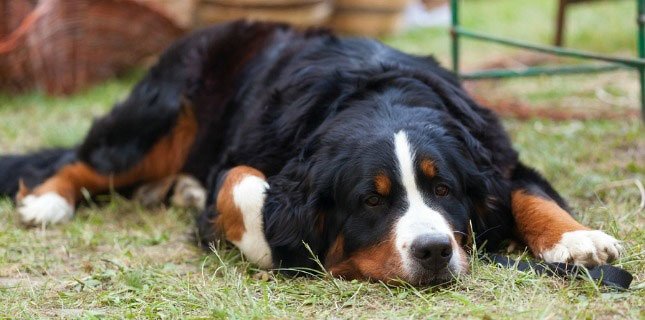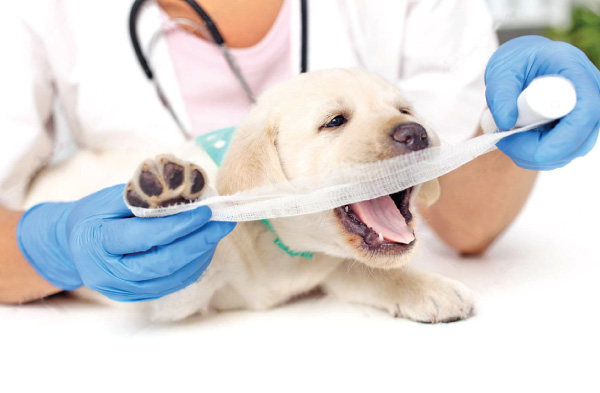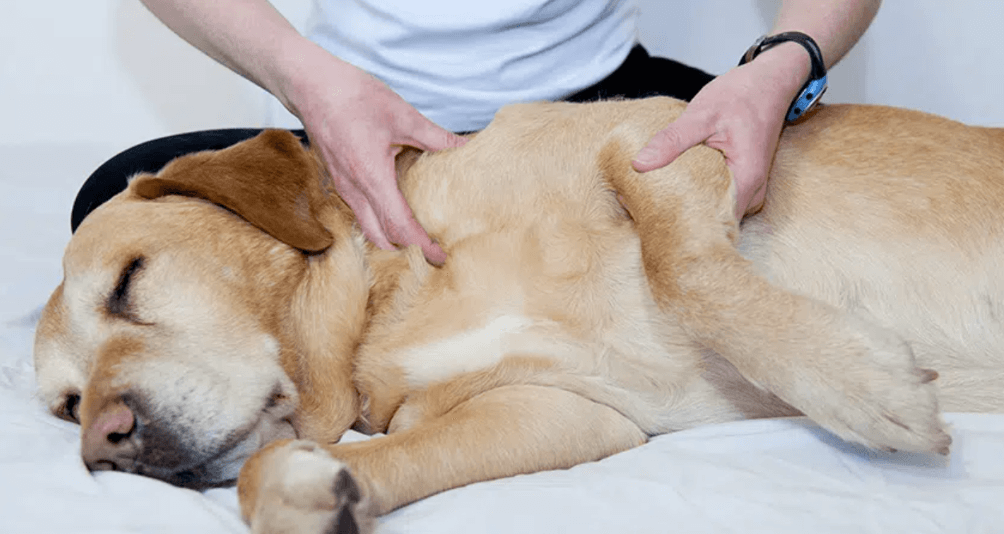Don't Neglect your Dog's Wound Care - Here's What You Need to Know
Dog wound care is an important part of being a responsible pet owner. No matter how small or large the wound, it should always be taken seriously and treated properly. Neglecting to take proper care of your dog's wounds can lead to infection, more pain and discomfort, and possibly even more serious health issues. That's why it's important to understand the basics of dog wound care to provide the best possible care for your furry friend.
The Importance of Wound Care
For dog owners, the importance of wound care cannot be underestimated. Dog care is essential to keeping your furry friend healthy and happy, and part of that care includes treating and preventing any wounds your pup might experience. As a pet, dogs are subject to various wounds and need dog wound care, ranging from small scrapes to deep cuts.
That is why it's essential to keep an eye out for any wounds on your pup and take steps to treat them properly. Not only will this prevent infections and other complications, but it can also help ensure your beloved dog remains safe and healthy.
The Different Types of Wounds
Dog wound care needs special attention when caring for our beloved canine companions. Dogs can suffer from many wounds, ranging from minor scrapes and cuts to serious lacerations.
Scrapes and abrasions are common injuries in dogs, and these generally do not require much medical attention. However, it would help if you still cleaned the area with a gentle antiseptic solution, as dirt and bacteria can get into the wound and cause infection.

Lacerations are deep cuts that usually require stitches. If you suspect your dog has a laceration, it's important to take them to the vet as soon as possible for treatment.
Dogs can also develop puncture wounds from stepping on sharp objects or being bitten by another animal. These wounds often require antibiotics, as puncture wounds are prone to infection.
Know About Your Dog Breed Better
Finally, bite wounds are another common type of wound in dogs. They can be caused by fights with other animals, ranging from minor scratches to deep punctures. If your dog has a bite wound, it is important to seek immediate medical attention to ensure the wound does not become infected.
No matter what type of wound your dog has, taking good care of them is essential for their well-being and health. Taking proper steps to clean, treat and monitor your dog's wound will help them heal quickly and keep them safe from potential infections and complications. You can ensure your pet is healthy and happy by showing love and providing proper dog care.
How to Clean a Wound
When it comes to dog care, a key part of keeping your pet healthy is being able to identify and clean wounds. Knowing how to clean a wound is essential for any pet parent. Dog wound care is important to help prevent infection and promote healing.
The first step in cleaning a wound on your dog is to clip the fur around the wound so that the area can be easily seen. Next, use lukewarm water to rinse off the wound, gently wiping away any dirt or debris. If the wound is particularly dirty, use a mild antibacterial soap or disinfectant solution instead of plain water. Avoid using hydrogen peroxide, which can damage healthy cells and delay healing.
After cleaning the wound, ensure it is completely dry before applying a bandage. It's also important to examine the wound regularly to check for signs of infection. If you notice any redness, swelling, or discharge from the wound, contact your veterinarian as soon as possible. Taking good care of your dog's wounds will help them heal faster and keep them healthy and happy.
What Type of Bandage to Use?

Dog care is one of the most important topics in wound care. Dogs are considered a man's best pet, and any injuries they experience should be addressed immediately. To ensure that your dog's wound properly heals, it is essential to choose the right type of bandage for the wound.
Read Also:
Hyperphosphatemia in Dogs: Symptoms, Causes, & Treatments
First, you will want to assess the wound and its size. If the wound is large, you should use a wide bandage to cover it. Make sure that the bandage is comfortable and not too tight. A tight bandage could restrict your dog's movement and make them uncomfortable. Also, keep the bandage dry as much as possible, as wet bandages can cause irritation and infections.
Read Also
If the wound is small, then a smaller bandage can be used. However, use a non-stick bandage, like gauze or medical tape. This will help to prevent the bandage from sticking to the wound and causing further discomfort. Be sure to change the bandage regularly, especially if it becomes wet or dirty.
When you doubt what type of bandage to use on your dog's wound, it is best to consult a vet for advice. They can help you to determine which type of bandage would be best for your pet's specific injury and provide guidance on how to apply it properly. Proper wound care is essential to keeping your dog healthy and happy!
When To See A Vet

It is important to monitor the condition of your dog's wounds closely and to be mindful of signs of infection. Dog care should include regular wound checks, and any sign of complications should prompt you to visit a vet. The best way to ensure your dog's health is to be proactive in wound care and not wait for problems to arise.
Anytime your dog sustains a serious wound, it's important to bring them to the vet for an evaluation. Even minor wounds can become more serious if not properly treated, and dogs as pets can hide their pain.
A vet can evaluate the wound and advise on how to proceed with the treatment. It's also important that your vet be informed of any medications your dog is taking, as some drugs may interact with antibiotics or other treatments used to treat dog wounds.
Read Also:
What's up with those eyebrow Whiskers on cats?
At the vet's office, they can clean the wound, assess the severity, and determine what type of treatment is needed. They may also perform tests such as a culture to check for bacterial infections and X-rays to ensure no foreign material is inside the wound. In some cases, surgery may be necessary to repair the damage done by the wound.
In conclusion, always monitor your dog's wounds closely, and if you see signs of infection or worsening of the wound, make sure to take your pup to the vet immediately. With proper wound care and medical attention, you can help ensure that your pet remains happy and healthy!
Conclusion
Dog care is an essential part of having a pet. Dog wounds should not be ignored, and it's important to know how to clean, dress, and monitor them properly. Taking the necessary steps regarding your dog's wound care can help keep your pet healthy and safe. Your furry friend can be a best friend with proper dog care for years.






